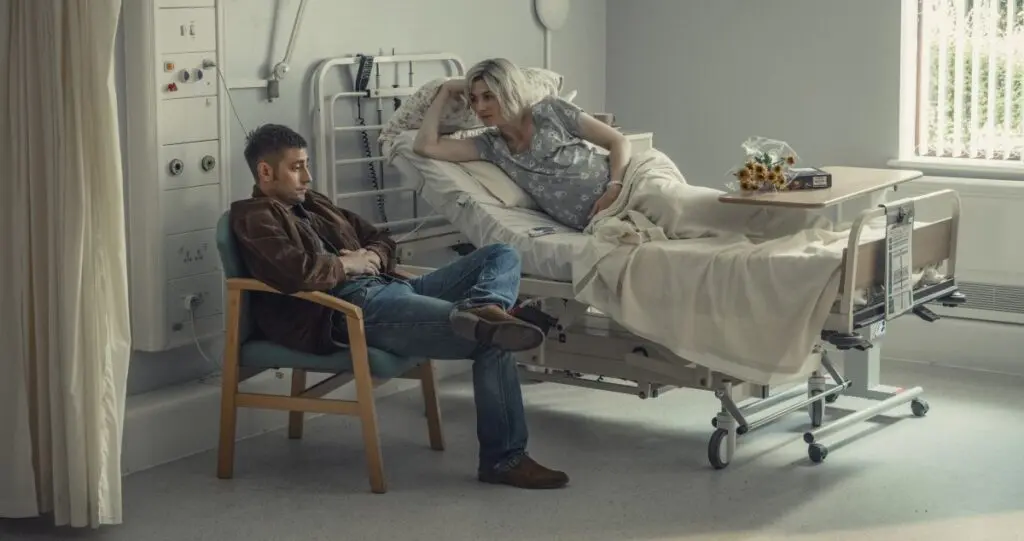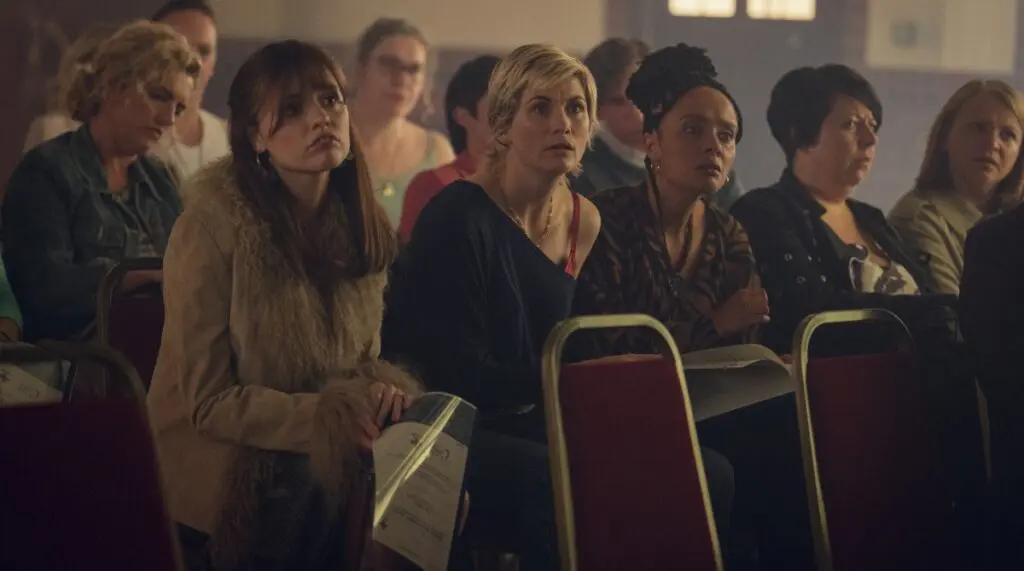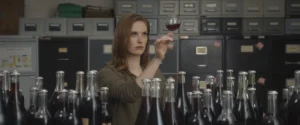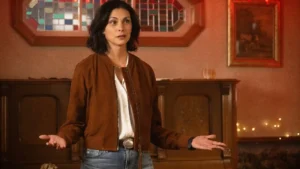Summary
Jodie Whittaker leads a wonderful cast in Netflix’s Toxic Town, a power-to-the-people true story with an appropriately righteous streak.
Early into Toxic Town, it got me thinking about Bank of Dave, and that’s before Rory Kinnear (The Imitation Game, The Diplomat) showed up. Both are stories about ordinary people from lesser-known, working-class parts of the U.K.; both are about community spirit and standing up to authority by putting power in the hands of ordinary people. Both are funny but can be wrenchingly sad and both are, in large part, absolutely true.
Written by Jack Thorne (Enola Holmes 2; The Accident) for Netflix, Toxic Town feels a little more immediately emotional than the recent Bank of Dave 2: The Loan Ranger, which chronicled a Burnley man’s fight against unethical payday loan companies. This four-part series, set in Corby in the East Midlands, is about a spate of babies born with physical deformities thanks to the toxic local air, told from the perspective of several of the mothers who had no idea that their circumstances were a result of negligent practices and an ensuing cover-up by the Corby Borough Council.
Two mothers in particular steal the show. Susan (Jodie Whittaker, Doctor Who; Trust Me) and Tracey (Aimee Lou Wood, Sex Education; The White Lotus; The Electrical Life of Louis) meet in the maternity ward, bonding over the excitement of their children’s imminent arrival. But Susan’s son is born with a deformed hand, while Tracey’s daughter is born with several health complications and ultimately dies. Neither woman knows that there are many mothers like them, whose children were born around the same time with similar issues, particularly underdeveloped fingers and toes.
After chance meetings with a journalist and eventually a determined lawyer, Des Collins (Kinnear), Susan begins to lead a burgeoning campaign of aggrieved mothers determined to take the local council to task for knowingly dumping toxic chemicals into the air. Corby was, like much of Britain north of London, a steelmaking hub in the ‘70s, and its reputation as a town of industry led the council to prioritize profits over people for years.
Jodie Whittaker is extremely good in this and has the showiest performance, shouldering most of the comedy and a lot of the emotion, but it’s Aimee Lou Wood who functions as the beating heart of the story. Her loss is subtly displayed, and her general, relatable policy of avoiding confrontation – whereas Susan in large part seeks it out – makes her eventual testimony even more impactful.
Kinnear is dependably good in a familiar role, and Robert Carlyle is disappointingly underused as a council worker with a conscience whose big moment never really comes. But this is very much the story of the families, and of Susan and Tracey in particular, both of whom come across well as the everyday underdogs facing systemic corruption.

Michael Socha and Jodie Whittaker in Toxic Town | Image via Netflix
Toxic Town knows how powerful its true story underpinnings are – not to mention how scarily recent the mid-‘90s feel, especially in these largely unchanging blue-collar towns like Corby. The egregiousness of the corporate malpractice and the inherent emotional pull of anything afflicting innocent children make the four 50-minute episodes engaging without the need for any made-for-TV embellishment, which makes it a shame that some broad strokes storytelling does creep in.
You can see this mainly in the “villain” contingent, with everyone involved in the council or the steel plants or their legal defense team coming across like mustache-twirling cartoon bad guys (the characters, including a higher-up played very well by Brendan Coyle [Requiem], are fictional composites of various real-life figures). Some of Susan’s potentially spiky edges – she’s heavily medicated for depression and likes a drink – are planed away, and the father of her children, played by an obviously snakey Michael Socha, feels like he exists simply to provide conflict that is ultimately quite easily resolved.
I’d have also liked more time spent with the children and perhaps some of the other mothers, but with such a limited canvas it does make sense to keep the perspectives limited to mainly Susan and Tracey’s. These are nitpicks, granted, but there’s a sprawling quality to the actual story that is a bit lacking in the show, which takes place from the mid-nineties to the late noughties but feels so contained that you can only tell how much time has elapsed by the age of Susan’s kids.
Quibbles aside, though, Toxic Town tells a true story with appropriate righteousness, surprisingly good humor, and expert performances from a who’s-who of British screen royalty, all of whom you could imagine being deeply invested in a power-to-the-people script like this. It’s well worth looking at during an otherwise quiet streaming weekend, especially if you’re old enough to remember the case.
RELATED:




